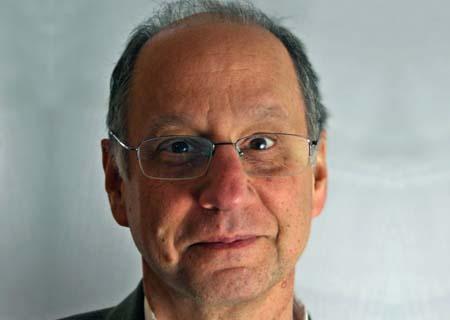
09 Jul David Weinberger

Speaker: David Weinberger
One of the foremost interpreters of technology’s impact on business and society, Author of Too Big to Know: Rethinking Knowledge Now That the Facts Aren’t the Facts, Experts Are Everywhere, and the Smartest Person in the Room Is the Room
Speech Topics Include:
- The War Against Customers: What Marketing Can – and Must – Learn from the New Connectedness
- The Information Revolution That Wasn’t and the One That Will Be: How the New Dimensions of Information Are Transforming Business… and Life
- The Knowledge Management Oxymoron
- Messiness Is a Virtue: Information Management in the Age of the Web
Speaker David Weinberger has been called a “marketing guru” by the Wall Street Journal, he is co-author of the influential bestseller The Cluetrain Manifesto (1999), and author of the critically acclaimed bookSmall Pieces Loosely Joined (2002), a highly original and accessible reflection on the human impact of the internet.
His latest book, Too Big to Know: Rethinking Knowledge Now That the Facts Aren’t the Facts, Experts Are Everywhere, and the Smartest People in the Room Is the Room, gets to the heart of what we need to know, and too often don’t, about how the network world’s flood of information is transforming business and society.
One of the connected economy’s most thought-provoking mavericks, Speaker David Weinberger currently works as a strategic marketing consultant, working for, founding, and consulting with corporations of all sizes – from Fortune 500s to early-stage startups. He has been published in a variety of journals and newspapers, including Wired, Harvard Business Review, Salon, The New York Times, Smithsonian Magazine, and The Guardian.
Weinberger holds a Ph.D. in philosophy from the University of Toronto and taught philosophy for five years at New Jersey’s Stockton State College. Since 2004, he has been a fellow at Harvard University’s prestigious Berkman Center, gag writer for Woody Allen, NPR commentator (for “All Things Considered” and “Here and Now”), technology columnist (for KMWorld and Darwin Magazine), blogging pioneer, and dot-com entrepreneur. Most recently, he was accepted as a Fellow at Harvard’s Berkman Center for Internet and Society.
The War Against Customers: What Marketing Can – and Must – Learn from the New Connectedness
The fundamental fact of marketing is that you’re trying to get an unwilling customer to do something they don’t want to do. That’s why customers want to flee when they sense they’re being marketed to. But suppose waging war against our customers – “targeting” them via “strategies” and “tactics” – isn’t such a good idea? And suppose customers simply won’t stand for it anymore?
Traditional marketing views itself as a type of broadcast, wherein a single voice gets to send a message to a mass of people. But the Internet is the anti-broadcast medium: it’s not mass, it’s not one-way, and it’s not controlled by companies that can pay to send out a message. The Internet is, in fact, a conversation among your customers who are discovering that they are a far better source of information about products and services than the companies ever could be. This is the most fundamental shift in marketing since the creation of mass media. And it affects all marketing, on or off the Web.
In this keynote speech, the audience will learn how old marketing techniques actually alienate customers; the keys to engaging in the new customer conversations the market expects (and demands); and how to anticipate the most important change in customer dynamics and marketing since the invention of mass media 80 years ago.
The Information Revolution That Wasn’t and the One That Will Be: How the New Dimensions of Information Are Transforming Business… and Life
Remember how in the ’80s and then the ’90s we were all going to drown in information? The information tidal wave crashed all around us… but we barely got wet. But don’t relax too soon. The real change is already upon us.
We managed to survive the information tsunami by coming up with surprisingly good information management tools – who would have predicted Google would be so great? – and, frankly, ignoring much of the information that we’ve gathered.
It turns out that the quantity of the information hasn’t changed our businesses or our lives so much. But changes are on the way that will bring about deeper and more profound changes in the most fundamental dimensions of life and work:
- Place: Thanks to wireless networks, mobile devices that know where they are, and clever tools that figure out what spots documents are talking about, information about places will be available at those places. For the first time, the earth itself will no longer be speechless.
- Groups: As weblogs – online journals – become commonplace to the young generation, the line between private and public is being erased… including the line between company and customer.
- The Past: As digital photography becomes pervasive, and as sharing files among friends becomes the norm, personal memories will become communal.
- Truth: In order to manage vast quantities of information, we have to deal explicitly with information about information – tags, labels, categories – which can lead businesses to ignore the real roots of their value: the messy, personal relationships that are the source of all innovation and loyalty.
In this talk, Dr. Weinberger looks at these trends and others, painting a picture of the future that challenges business to change or be left behind. Audiences will walk away with a new understanding of the latest technology trends and their effect on business, as well as how to take advantage of these new technologies.
The Knowledge Management Oxymoron
Messiness Is a Virtue: Information Management in the Age of the Web




